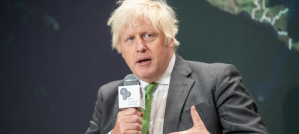As Populism Surges Globally, Governments Must Respond Accordingly
Populism is perhaps one of the least understood trends in modern day governance. In the post-World War II era, populist insurgencies around the world have been infrequent and sporadic, and up until recently, was virtually non-existent in developed nations.
In more recent years, however, the world has witnessed the rise of anti-systemic populist movements, remarkably in the United States with the election of Donald Trump, as well as in the United Kingdom with the stunning Brexit vote.
Populism in the developed world has surged in recent years, and the vote share of populist parties is currently at its highest level since the late 1930s, according to a 2017 report released by Bridgewater Associates.
Conventional wisdom holds that governing parties who are successful in stimulating economic growth can expect to remain in power and stave off any potential populist or anti-establishment insurgency.
In the last 10 years, there has been an unprecedented level of global economic growth. What then, can explain the populist insurgency that has swept across the globe, as well as across the nation once regarded as the standard-bearer of democracy—the United States?
A new global study commissioned by the Victor Pinchuk Foundation, the Global Happiness and Political Attitudes Survey, which was released at the Yalta European Strategy Annual Meeting produced innovative results that provide answers to this confounding, loaded question.
Simply put, the survey revealed that incumbent governments wishing to remain in power need to focus on governance for happiness. What sets apart the Global Happiness and Political Attitudes Survey—which was produced under the direction of George Ward, a preeminent scholar on the link between happiness and voting behavior—is that it uses “personal happiness” as a metric to predict both voter choice and satisfaction with government.
The study concludes that conventional economic prosperity can no longer sustain democracy and fend-off populist insurgencies. It is imperative that governments begin to focus more on policies and a style of governance that promote happiness and well-being, which will ultimately restore trust in government.
Indeed, findings of the Global Happiness and Political Attitudes Survey speak volumes to this trend. The survey analyzed 15 countries across six continents—representing 51.9% of the population, with 1,000 interviews conducted in each nation.
One of the most compelling findings is that citizens are more likely to favor governments which advocate for an alternative to current governance which focuses on citizens’ well-being.
Put another way, people are becoming more willing to trade conventional economic prosperity for the promise of personal happiness, even if their economic situations are not improving—or are actually declining.
This is especially true with the government of the United Kingdom, the nation once regarded as Europe’s greatest democracy, even though it has recently experienced a populist insurgency and an outright rejection of conventional wisdom on governance.
Indeed, a stunning 88% of survey respondents from the United Kingdom said that government should play a role in looking after people’s happiness. This was even more pronounced among the nation’s populist cohort, 97% of whom said that government should fill this role.
In 2016, British citizens voted to leave the European Union—a traditional institution which voters saw as decreasing their happiness—despite the clear economic ramifications. Years later, notwithstanding the economic paralysis looming over the United Kingdom, Boris Johnson, the populist leader representing the Leave camp, was elected as British Prime Minister.
To be sure, Johnson has faced a number of stunning defeats in Parliament since his election, and his government recently prorogued Parliament for 5 weeks. However, Johnson’s election is indicative of British citizens’ willingness to reject the conventional, normative style of governance in favor of a candidate who promises to put the people first.
According to the findings of the Global Happiness and Political Attitudes Survey, this trend also holds true in Ukraine. The survey finds that Ukrainians are the most optimistic for their children’s future happiness, while markedly pessimistic about their present status quo, which they felt was a result of the Poroshenko government.
Indeed, Ukrainians largely feel that the Poroshenko government failed in governance for happiness, explaining why the citizens elected Volodymyr Zelensky, a comedian and populist leader who ran on an anti-corruption, anti-systemic platform.
Further, the results of the survey reveal that, in Ukraine, unhappy people are 20% more likely to hold populist views than Happy people—a striking and pervasive trend across the majority of nations surveyed.
Ultimately, the fact that people across the world are now more willing than ever to vote for populist leaders who have co-opted governance for happiness is a threat to the stability of countries throughout the world, and indeed to democracy itself.
As the Global Happiness and Political Attitudes Survey reveals, majorities in nearly every country surveyed believe that the current political, social, and economic systems are not working—nor are they making people happy.
In eight of the countries studied, the share of people who feel this way is around or over 75% of the population, a staggering finding that is attributable to the rise in global populism.
It is now imperative that governments become attuned to this trend and likewise to their citizens’ desire for a style of governance that promotes happiness and life satisfaction in all realms, not just in a conventional economic sense.
Doug Schoen
Forbes



 Меню розділу
Меню розділу